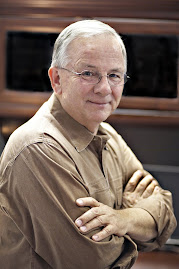
Let me continue from the last two weeks … Leaders are Faithful …
Effective leaders believe that others are trustworthy and can be counted upon.
Faithful leadership acknowledges that every person we encounter is made in the image of God. Therefore, leaders view others as worthy of trust. Effective leaders rely upon others for the completion of the work of filling the earth with God’s glory. Effective leaders assign and delegate duties and responsibilities with a steadfast confidence in the willingness, ability, and trustworthiness of others to complete what they have agreed to do.
But – what is the basis for this trust? What better role model do we have than God the Father, God the Son, and God the Holy Spirit? Each member of the Godhead is a perfect model of faithful:
Faithfulness is a key characteristic of God the Father. Throughout history, God made promises to His people. Over and over again God kept those promises. He did what He said He would do:
*God the Father promised Noah’s family safety from the great flood, and they were delivered
*God the Father promised an old man with a barren wife that his descendants would outnumber the stars in the heaven, and then gave Abraham and Sarah a son
*God the Father promised Abraham, Isaac, and Jacob that their descendents would inherit a promised land, and then delivered His people out of bondage in Egypt and led them to the Promised Land
*God the Father told a shepherd boy that he would become a king, and then carried David onto the throne of Israel
*God the Father promised to bless David’s descendents, and then gave wisdom to Solomon
*God the Father promised to send the seed of the woman who would crush the serpent’s head, and then sent Jesus
*God the Father promised to solve the problem of a world broken by man’s rebellion, and sacrificed the Lamb that took away the sins of the world
*God the Father promised to grant eternal life to His people, and He sent a Savior whose resurrection secures eternal life and His Spirit to lead us on this sanctifying journey
With each and every promise, God the Father was completely true to His word. God kept his promises. He was faithful. Consequently the ancients of old staked their lives and reputations on these promises. As Luther put it, these leaders believed and followed “the naked voice of God.”
Faithfulness is a key characteristic of God the Son:
*In the Garden of Gethsemane God the Son showed his faithfulness to the ghastly task that was ahead of Him, “Not my will, but yours be done” (Matthew 26:42, ESV).
*God the Son faithfully promised that He would not lose any of his sheep. (John, chapter 10)
*God the Son reminded His disciples of His faithfulness and trustworthiness, “If it were not so, would I have told you?” (John 14:2, ESV).
*God the Son promised that whatever we ask in His name He would be faithful to give it to us. (John, chapter 15)
*God the Son proved His trustworthiness by saying He would be raised from the dead and then actually arose. (John 2:19)
Just as God the Father is faithful, so, too, God the Son, Jesus, is faithful to everything that He promised. What He has promised is certain. It has and will come to pass. You can count on His promises. You can count on Him to deliver. God the Son is faithful. You can count on Him to be faithful.
Faithfulness is a key characteristic of God the Holy Spirit. God the Holy Spirit, who is the same in substance and equal in power and glory with God the Father and God the Son, is also completely faithful and trustworthy:
*God the Holy Spirit is faithful in uniting you, lastingly, to Christ
*God the Holy Spirit faithfully equips you, God’s child, with gifts that enable you to grow the church into unity, maturity, and strength
*God the Holy Spirit faithfully intercedes for you “with groanings which cannot be uttered” (Romans 8: 26-27, ESV)
*God the Holy Spirit is faithful, trustworthy, and reliable
*God the Holy Spirit is the guarantor of your salvation, granting hope in eternal life
*God the Holy Spirit gives you the ability to serve the living God
*God the Holy Spirit enables you to resist the author of evil, Satan himself (Hebrew 9:14)
*The Holy Spirit is your faithful companion on the journey of life.
Truly effective leaders understand that every person they encounter in their personal and professional arenas was created and charged to be faithful – just as God (Father, Son, and Holy Spirit) is faithful.
What better role model do we have than God the Father, God the Son, and God the Holy Spirit as we claim and cultivate this core leadership attribute, faithful?
You are a leader!
Now go out and lead in His image!
This is The Genesis Principle of Leadership!





